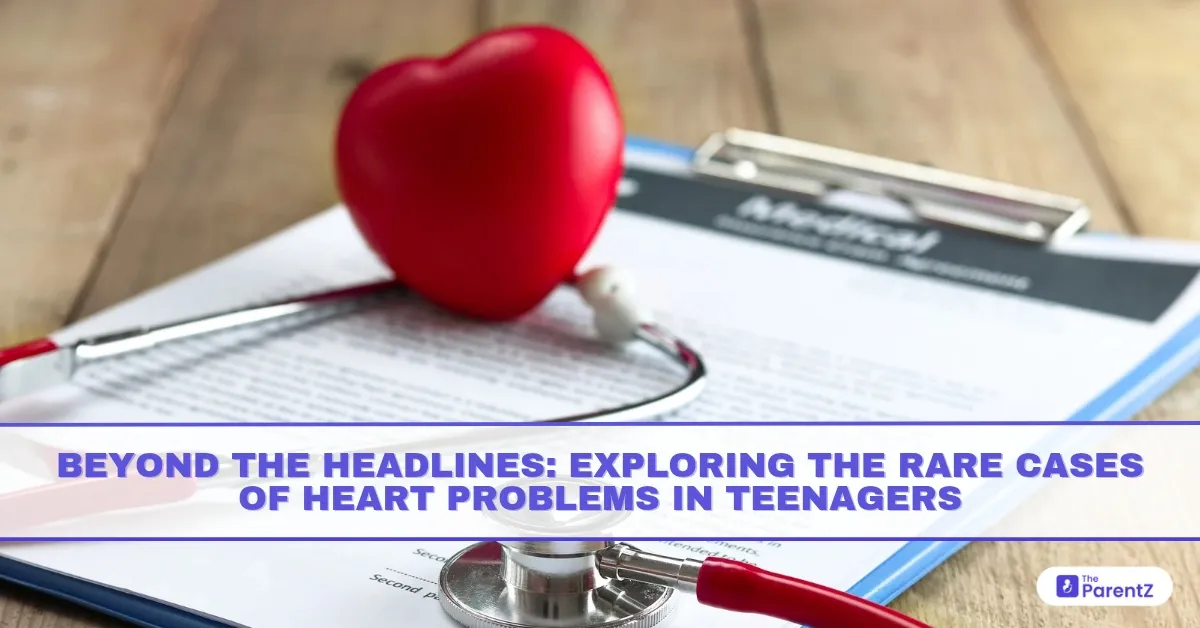When news breaks of a teenager collapsing during a sports event or passing away unexpectedly, it shocks communities. These stories often make headlines for their tragic rarity. But behind each headline lies a reality that deserves deeper attention: some heart problems, though rare, do occur in teenagers, and they can be deadly if missed.
Teenagers are typically associated with growth, energy, and resilience. Yet, beneath the surface, unseen and undiagnosed heart conditions can silently progress. These rare cases, often rooted in genetic, structural, or rhythm-related issues, are easy to overlook until they cause sudden and severe consequences.
Let’s go beyond the headlines and understand what kinds of heart conditions can affect teenagers, why they occur, and how we can protect our adolescents with awareness, early detection, and empathy.
What Makes Teenage Heart Problems Unique?
The teenage years are a time of rapid hormonal, emotional, and physical change. The heart must adjust to:
- An expanding body mass
- Increased physical activity
- Emotional highs and lows
- Sleep disruptions and academic stress
If a teen has an underlying genetic or congenital cardiac condition, these physiological demands can expose or worsen the issue. What’s more troubling is that many of these conditions show few or no symptoms until a major event occurs.
Rare but Serious Heart Conditions in Teens
1. Hypertrophic Cardiomyopathy (HCM)
One of the most common causes of sudden cardiac death in young athletes.
- The heart muscle becomes abnormally thick, making it harder to pump blood
- Often inherited, and may run silently in families
- Symptoms: fainting, chest pain, palpitations—especially during exertion
- Requires ECHO, ECG, and often genetic testing
2. Arrhythmogenic Right Ventricular Cardiomyopathy (ARVC)
- A rare condition where heart muscle in the right ventricle is replaced by fat or scar tissue
- Leads to dangerous arrhythmias
- More common in teens and young adults engaged in sports
- May cause sudden collapse or death during exercise
3. Long QT Syndrome (LQTS)
- An inherited disorder affecting the heart’s electrical system
- Prolongs the time it takes the heart to recharge between beats
- Can cause fainting, seizures, or sudden death
- May be triggered by exercise, emotions, or even loud noises
4. Wolff-Parkinson-White Syndrome (WPW)
- A rare conduction abnormality that creates an extra electrical pathway
- Causes episodes of rapid heartbeat (SVT)
- May present as palpitations, dizziness, or chest discomfort in teens
- Usually treatable with a procedure called ablation
5. Congenital Coronary Artery Anomalies
- Abnormal origin or path of coronary arteries
- Can restrict blood flow during exertion, leading to chest pain or sudden death
- Often diagnosed only after a cardiac event unless specifically investigated with imaging
6. Myocarditis
- Inflammation of the heart muscle, usually due to a viral infection
- Can present as chest pain, breathlessness, or fatigue
- Sometimes mimics flu but can rapidly progress to severe heart failure or arrhythmias
- Seen occasionally after infections or even as rare complications post-vaccination
Warning Signs Not to Ignore in Teenagers
Because many of these conditions present subtly, it’s vital to watch for red flags, especially if they appear during or after physical exertion:
- Unexplained fainting spells (especially during sports)
- Shortness of breath or chest pain unrelated to anxiety
- Palpitations or a “racing heart” at rest
- Fatigue disproportionate to activity
- A family history of unexplained deaths, sudden cardiac arrests, or pacemaker use
- Seizure-like episodes that aren’t explained by neurological findings
Even if symptoms occur once, they deserve a thorough evaluation. Early detection can mean the difference between life and death.
Screening and Diagnosis: What Can Be Done?
For teens with symptoms or family history:
- ECG (Electrocardiogram): Detects abnormal rhythms
- Echocardiogram: Assesses heart structure and function
- Holter Monitor: Tracks heart rhythm over 24–48 hours
- Exercise Stress Test: Checks the heart’s response to physical exertion
- Cardiac MRI or CT Angiography: Useful in suspected myocarditis or coronary anomalies
- Genetic Testing: Helpful in inherited conditions like HCM or LQTS
Currently, universal cardiac screening isn’t mandatory in schools, but targeted screening is strongly recommended for:
- Teens in competitive sports
- Those with red flag symptoms
- Those with a family history of sudden cardiac events
Emotional and Mental Health Considerations
For teenagers, being diagnosed with a heart condition can feel isolating and frightening. There may be:
- Fear of exclusion from sports or social events
- Anxiety over needing lifelong medications or procedures
- Concerns about identity, independence, and future plans
Parents, teachers, and healthcare providers must ensure psychological support, help the teen understand their condition without panic, and encourage them to live fully within safe boundaries.
Can These Conditions Be Treated or Managed?
Yes many heart conditions in teens, though serious, are:
- Manageable with medication
- Treatable via minimally invasive procedures or surgery
- Monitored with regular follow-ups and lifestyle adjustments
Some teens may need:
- Implantable devices like pacemakers or defibrillators
- Restrictions on high-intensity sports
- Lifestyle changes to avoid triggers
The goal is always to preserve quality of life while minimizing risk. With timely intervention, many teens go on to lead normal, active lives.
Conclusion: Awareness is the First Line of Protection
While rare, heart problems in teenagers are real and increasingly recognised across India and the world. Going beyond the headlines means asking better questions, listening more carefully to what a teenager’s body is saying, and never brushing off signs that feel unusual.
Every teen who faints, who feels short of breath, or whose heart races for no reason deserves to be heard, not hurried past.
When we stay informed, ask the right questions, and act early, we can save lives, not just make headlines.





Be the first one to comment on this story.